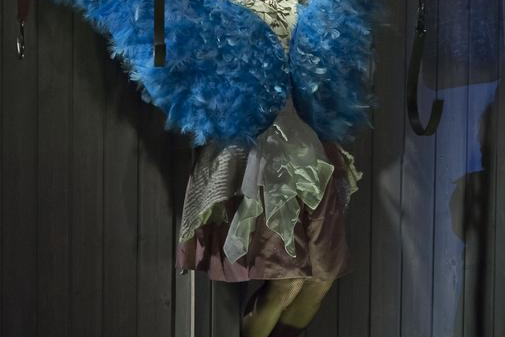ODIN TEATRET
The Trilogy of the Innocent
The Innocence of War and of Its Victimsga
Innocent is a luminous word. We don’t feel guilty because we are ware that guilt is a reaction of our conscience. And this reaction is not automatically associated with a misdeed that we may have committed considering it a legitimate defence. Let’s look at the face of war: that of a tiger. The tiger tears a child to pieces. This is obviously a tragedy, but it doesn’t tarnish the innocence of the tiger. Innocence does not take damage into account, it demands only purity of intentions. For those fighting in a war, innocence coincides with a respect for their role within the mechanisms of a struggle whose purpose is to exterminate the adversary. We don’t usually associate the word innocent with war, but with its victims, those who don’t commit outrages and destruction. We think of orphans, widows, women who experience the innocence of war on their bodies. Odin Teatret’s trilogy speaks of the many forms of innocence, asking the question: are we all, perhaps, innocent?
Trilogy - Third landscape: the future (2031)
Here people eat without being hungry and drink without being thirsty
The Chronic Life takes place in various European countries in 2031, after the Third Civil War. Groups and individuals converge, challenging each other over their diverging dreams, disappointments and hopes. A boy from Latin America arrives, seeking his father, who has inexplicably disappeared. “Stop searching for your father” people tell him while escorting him from door to door.
The boy is not saved by knowledge or innocence. Rather, a newfound ignorance leads him to his door. All this takes place to the bewilderment of all of us, who no longer believe the unbelievable: that a single victim’s life is beyond value, is worth more than God.


